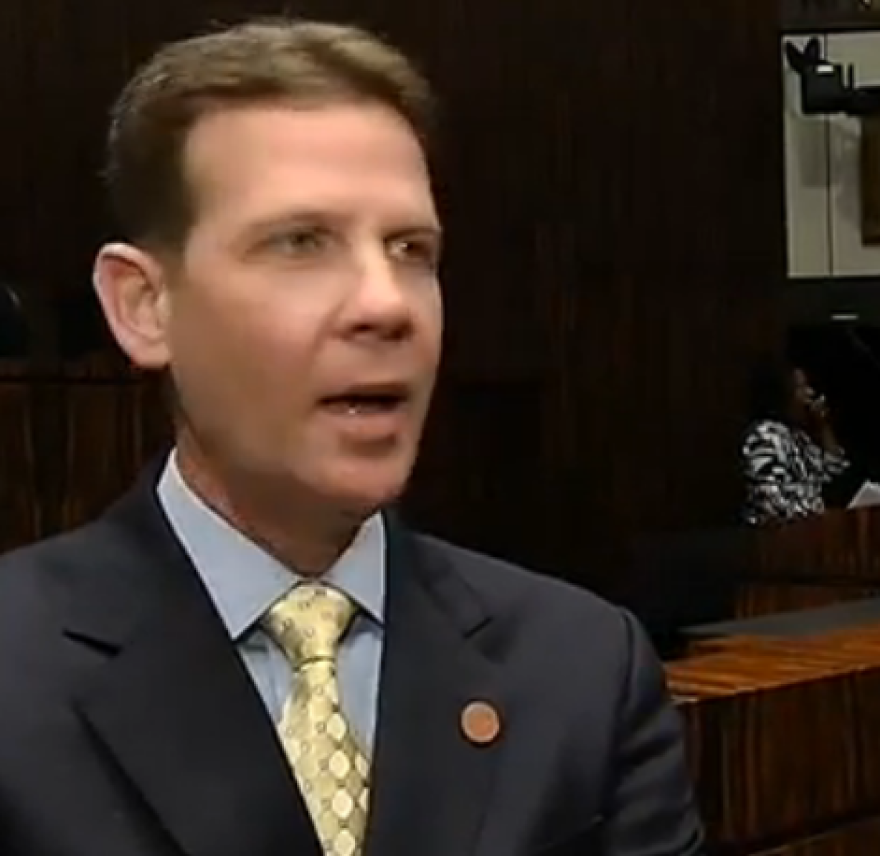Florida lawmakers return to Tallahassee next week, a month after a fight over healthcare funding caused an abrupt end to the regular legislative session. Their mission: get a state budget in place before the start of the July 1 fiscal year. But the fight over Medicaid is still smoldering and lawmakers could be adding more fuel to the fire with other health-related proposals slated for the agenda.
The Florida Senate is calling for a truce with the House. It’s dialing back It’s Medicaid Expansion proposal by removing language that would have automatically enrolled people in the current state program—something vehemently opposed by the House. Senate President Andy Gardiner says the Senate is trying to address House members’ concerns.
“If you recall our original bill, we had everyone come into the existing Medicaid system and then go into the private market. We heard concerns about that so we eliminated phase 1 and January of next year is when we’d start the process of enrolling people into the private market," he said.
The Senate wants to use federal Medicaid expansion dollars from the Affordable Care Act to help uninsured Floridians purchase private health plans. But the House’s opposition was a major cause of the blow-up. House Appropriations Chairman Richard Corcoran railed against “special interests” like hospitals who side with the Senate.
“I’ll proudly declare war with the special interests. Every single one of which. All the Gucci-loafing, shoe-wearing special interest powers-that-be sitting there in the hallway. All of them want Medicaid expansion. None of them want the other stuff.”
Part of the reason the Senate has pushed so hard this year to draw down the extra money is because a critical hospital reimbursement program is getting slashed by more than half this year. The state has known for more than a year the federal government is phasing out the Low Income Pool or LIP program, and the feds say Medicaid expansion could offset the loss. Shands of Jacksonville Hospital CEO Russell Armstead says a significant cut in the LIP program would be devastating.
“It’s both financial and human. A human tragedy. It’s almost 20 percent of my revenue. If I lose it, I’ll close in a few months," he told a Senate committee in April.
In a statement, House Speaker Steve Crisfaulli says getting a dollar amount on the size of the Low-Income Pool is a start toward building a budget, but he and other House leaders aren’t buying the Senate’s Medicaid expansion offer. Still, there’s a chamber hearing on the proposal when the legislature reconvenes.
What make special session’s special, is that they’re limited in scope: and the House and Senate have to agree on what the meeting will be about. The big item is the budget—but included in the call are several other house healthcare issues or what Representative Corcoran described as, “the other stuff”. A House bill would let Advanced Registered Nurse Practitioners prescribe medications. But doctors have opposed the idea and continue to do so. Another House plan rolls back what are called “certificate of need” laws: which regulate hospital expansion. Florida’s healthcare agency Secretary Liz Dudek says it’s a long-shot.
“It’s in the Governor’s call, and again, if I were to rank it—we can have some basic discussion, but it will be secondary to some of the other discussions we’ll have, although important," she told members of the Governor's hospital financing commission.
The legislature will also tackle a proposal that could give state employees more insurance options. But it could also raise rates. Another House bill would create so-called “recovery care centers” to house post-surgical patients for up to 72 hours. Hospitals oppose that bill because it could cut into their funding.
Tia Mitchell, Capital Bureau Chief of the Florida Times Union, says including Medicaid in the call for special session is significant, and possibly face-saving for the Senate:
“If the House members don’t have a sweeping change of heart during this interim, then its unlikely the bill will pass in the House. But at least it will get a vote. And that will allow the Senate to say, ‘we tried, but we can’t force the House. It’s been voted on’ the vote will likely fail, and they’ll say, ‘we have to move on’.”
The Journal Media Group’s Capital Bureau Chief Matt Dixon has a blunt prediction.
“So I think the House and the Senate are going to march their legislative priorities into the other chamber, and they’re going to get slaughtered. And then I think once that happens, they’ll pass a budget. I think the House and Senate will lose their priorities, they’ll get over it, and then we’ll write a spending plan," he said.
Adding weight to that theory is Senate President Andy Gardiner, who didn’t sound enthused by the House’s vision for the future of healthcare in the state:
“In my discussion with the House we’ve encouraged them to bring issues forward and we’ll send them to committee and if the Senate feels its good policy, we have no problem moving those forward," Gardiner said.
On Monday the House and Senate will have to start hearing each other out. They’ve got 20 days to reach a deal before the scheduled conclusion of the special session. But Florida has to have a budget in place by July 1.






